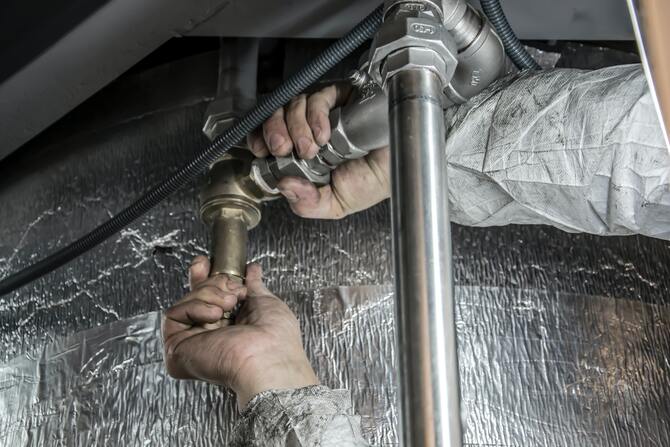Septic tanks play a crucial role in managing household wastewater in areas without access to municipal sewage systems. Proper maintenance of septic tanks is essential to prevent backups, odors, and environmental contamination. Experienced plumbing technicians provide valuable guidelines for septic tank maintenance to ensure optimal performance and longevity. This essay explores the key maintenance practices recommended by experts to keep septic systems running smoothly.
1. Regular Pumping Schedule
One of the most critical aspects of septic tank maintenance is adhering to a regular pumping schedule. An experienced plumber in Anthem, AZ, recommends pumping the septic tank every 3 to 5 years, depending on the tank’s size and household usage. Over time, solid waste accumulates in the tank, reducing its capacity and potentially leading to blockages. Regular pumping prevents these issues, ensuring efficient wastewater treatment and preventing backups into the home.
2. Avoiding Excessive Water Usage
Experienced professionals emphasize the importance of conserving water to maintain a healthy septic system. Excessive water usage can overwhelm the tank, leading to premature filling and reduced treatment efficiency. Homeowners should practice water-saving habits such as fixing leaks promptly, using water-efficient appliances, and spreading out laundry and dishwasher loads. These measures help prevent unnecessary strain on the septic tank.
3. Proper Disposal of Household Waste
Experts stress the significance of responsible waste disposal to prevent clogs and damage to the septic system. Avoid flushing non-biodegradable items and pouring grease, chemicals, and excessive amounts of household cleaners down drains. These substances can disrupt the natural processes within the septic tank and cause blockages. Educating homeowners about appropriate waste disposal practices is key to maintaining a healthy septic system.
4. Regular Inspections by Professionals
Experienced specialists recommend scheduling regular inspections by licensed professionals to assess the condition of the septic tank and its components. During inspections, experts check for signs of leaks, structural damage, and septic tank saturation. Early detection of issues allows for timely repairs and prevents costly damage or system failures. Homeowners should schedule inspections at least once every three years or as recommended by specialists.
5. Using Septic-Safe Products
These technicians advise homeowners to use septic-safe products to maintain the balance of beneficial bacteria within the septic tank. Harsh chemicals, antibacterial soaps, and bleach can disrupt the microbial environment necessary for wastewater treatment. Instead, homeowners should choose biodegradable and septic-safe cleaning products, laundry detergents, and personal care items. These products help preserve the functionality of the septic system and extend its lifespan.
6. Maintaining Drainfield Health
The drainfield is an essential component of the septic system responsible for wastewater filtration and absorption into the soil. Specialists emphasize the importance of preserving drain field health by avoiding heavy vehicles, construction activities, and excessive landscaping near the drain field area. Compacting the soil or damaging drainfield pipes can impair wastewater absorption and lead to system malfunctions. Proper drain field maintenance is critical for overall septic system performance.
7. Addressing Signs of Septic System Problems
Experienced proficients educate homeowners about common signs indicating septic system problems. These signs may include slow drains, gurgling noises in plumbing fixtures, foul odors near the septic tank or drainfield, and sewage backups in the home. Promptly addressing these signs and scheduling professional repairs or maintenance prevents further damage and ensures the continued functionality of the septic system.
Septic tank maintenance is essential for preserving the functionality, efficiency, and longevity of residential wastewater treatment systems. By following the guidelines provided by experienced technicians, homeowners can prevent costly repairs, avoid environmental contamination, and ensure a healthy living environment. Regular pumping, water conservation, proper waste disposal, professional inspections, use of septic-safe products, drain field maintenance, and addressing signs of system problems are key aspects of effective septic tank maintenance. Investing in proactive maintenance measures not only protects the septic system but also promotes sustainability and responsible wastewater management.
Are you looking for reliable drain cleaning services? Look no further than Plomero en Phoenix! Their experts ensure a healthy wastewater system. Call (602) 730-4663 to schedule your service today!
